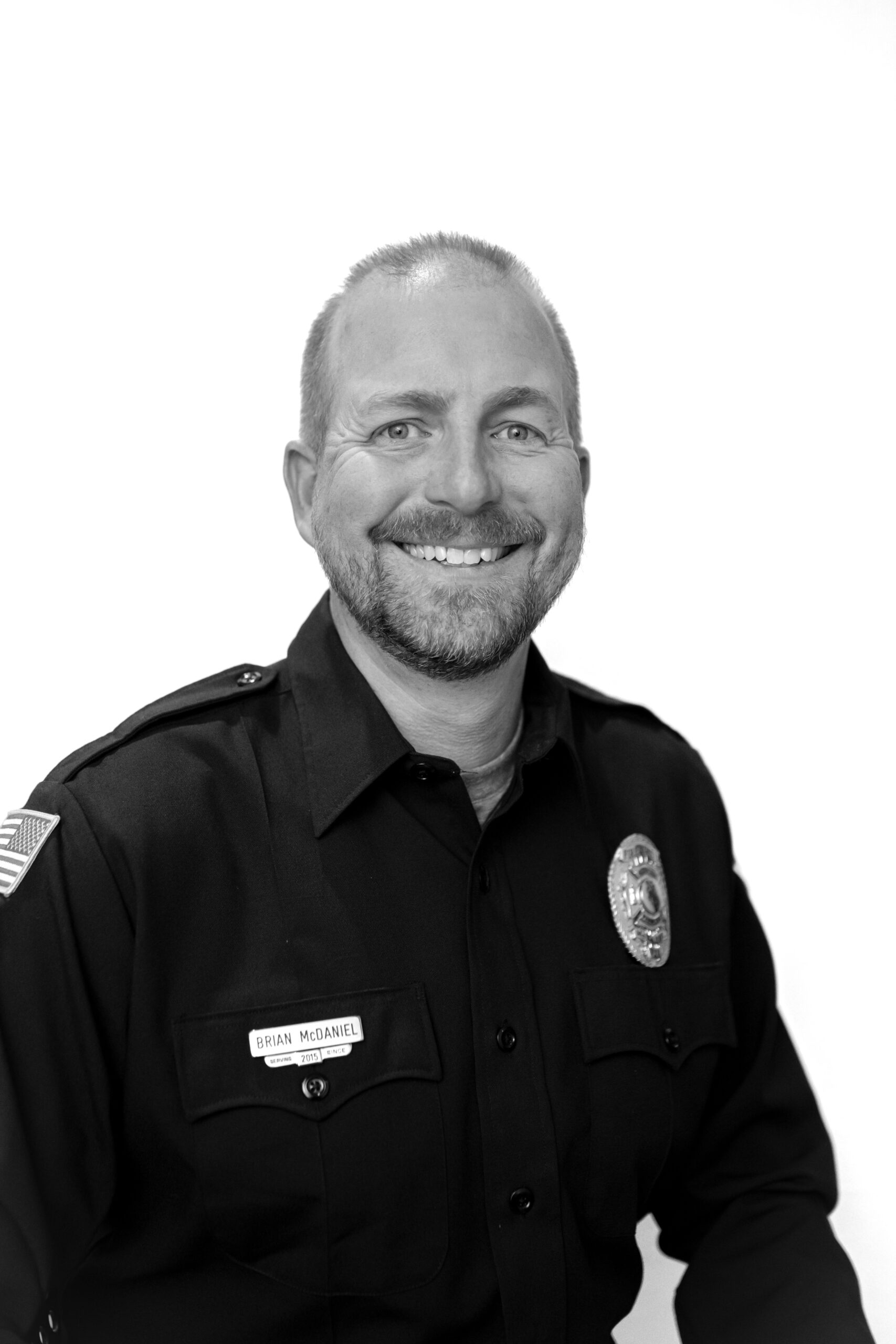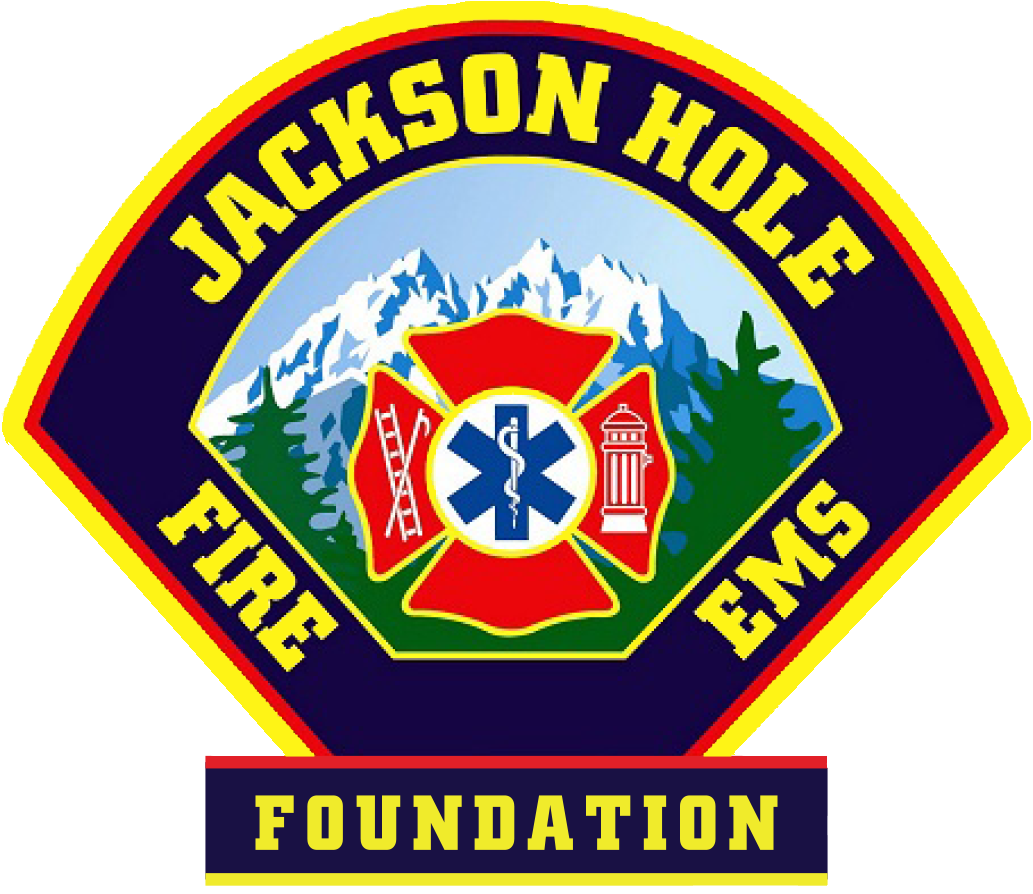
“…whether that’s being there for the trainings or being there to respond to calls even when it’s not the most ideal time, just the commitment and the passion for wanting to help people, regardless of what skill set you have, is crucial.”
Brian McDaniel
Brian McDaniel
Volunteer FFII/EMT
Present
Where are you from? Fort Worth is pretty much where I grew up.
How did you come to Jackson? A while back, I came up to work in Yellowstone National Park for the concessionaire. That was back in the mid-90s, and I had no idea what Wyoming or Yellowstone was about. I had no expectations, but I got up here and fell in love with the place and would do frequent trips down to Jackson from the park. Through that, I knew this is where I wanted to be and we spent the next 20 years making it happen. We eventually moved here in the summer of 2014.
In your words, what is your role in the department? First and foremost, to serve our community. Where that plays out most for me is up north of town where I live because I tend to be in an area where the response can be a little longer from in-town resources. I also kind of split the difference between Station 4 and Station 1, so I tend to first respond a lot in this area. At the end of the day, I’m not the end-all-be-all provider, but even if I can provide some level of comfort or take some of the burden off those in need or their family members or friends and help make it a less stressful experience for them until we can get additional resources up here, that’s my goal.
How long have you been a part of JH Fire/EMS? I became a full-time member in the spring of 2015.
What made you want to join initially? When I first moved here, I met Chief Clay at one of the open houses at Station 1 and she encouraged me to try it out. I had always admired the Park Service and firefighters for the work that they do in serving their community, so I thought I would give it a try. I signed on with Station 4 and then eventually got sent to the firefighter academy through the National Park Service in Paige, Arizona.
What are your current certifications? EMT, Fire 1 and 2, Hazmat, Redcard, Ropes Rescue Technician… All the basic standards.
What are your future goals in the department? I’m pretty happy where I am. I still work full-time and have a family, so I try to balance that with responding up here. I would say that ultimately if there’s a way to help foster a Station 8 at some point, I would help with that, but in the meantime, my goal is to serve our community members up here and try to give them as quick of a response as we can and to provide that level of comfort for them in their greatest time of need.
Speaking of family, how do you find a balance with your family and what do those conversations look like surrounding volunteering and calls and leaving at all hours of the day and night? There are certainly times when I have to turn the pager off. If it’s been a busy week and I can’t possibly get up in the middle of the night, I’ll turn down my pager when it’s needed. That being said, my family is very understanding and pretty flexible with my rapid departures at all hours of the day and night. We try to balance it in a way that works for everybody. There certainly are those times that, whether it’s traveling or we have important family things or kids are hitting milestones at school or sports, I’ll certainly take that time to make sure that I’m there for those important things.
What do you do for work? I’m in digital advertising, and I’ve been with a company based out of Fort Worth for just over 18 years now.
What do you do in your free time? I like to travel a lot. I enjoy hiking, and I enjoy the outdoors in general. Anything: skiing, biking, camping, you name it. I love the outdoors and being outside with my family and traveling as much as we can, especially now that COVID’s becoming more manageable and my kids are getting older.
What would you say is your favorite part of volunteering? I genuinely enjoy helping people when and where I can.
What about the most challenging part? I would say the most challenging part is some of the harder calls that we sometimes have to go to and mentally and emotionally dealing with those the best that you can.
Do you have a specific way that you deal with those difficult calls? Talking to people about it. I’m pretty open about it with my family or with other firefighters or others on scene, and on the harder calls, they’ll offer a debrief about things that we experienced on scene. So, just being open and talking about it helps quite a bit.
What advice would you give new recruits? I would say to be patient with the process; there’s a lot of training that goes into this and a lot of commitment. It’s important that they’re passionate about what they’re doing and not just doing it to get a T-shirt or to say they’re a member of the fire department. I’m trying to think of the words that Chief Clay used that I thought summed it up well…She appreciated me always being a part of the fire department and not just being around the fire department. So, I’d tell them to truly be a part of it and not just do the trainings or the fun stuff with the tools that we use but be present and show up for the calls too.
What would you say is the most important skill or trait for someone to have in this line of work? I guess it goes back to the commitment piece…so whether that’s being there for the trainings or being there to respond to calls even when it’s not the most ideal time, just the commitment and the passion for wanting to help people, regardless of what skill set you have, is crucial. Those skills continue to develop throughout your career and I think a lot of it is just being present because the rest of the hard skills will come with time.
What do you think you bring to the department? What I try to do, being in the location that I am, is that I try to keep resources toward town. We get a lot of fire alarms, lift assists, medical calls, and things like that. If I can get on scene and help keep resources closer to town where more of the call volume is so that our staff doesn’t get spread thin between Station 1 and Station 6, that’s my goal beyond helping the community. When that next big call does come, hopefully, they’re there to respond to that instead of something up here that I could have taken care of and stood them down.
Who is your mentor? I would say it’s a couple of people that stood out for me and helped me progress along the way. Chief Clay, who’s retired, and also Jim Warren, who’s with the Park Service. Jim was one of our Station 4 members who ultimately sent me to the fire academy through the National Park Service. His trainings have always been incredible, and his support of all firefighters has always been great. Same with Chief Clay, she has such a positive attitude about everything and she’s not afraid to admit she doesn’t know everything and she makes the opportunity to learn and grow from that; Both Clay and Warren have always been such great people to look up to and I think what makes them so unique is their willingness to give you their time and truly be engaged in helping everyone around them grow and be better at what they do.
